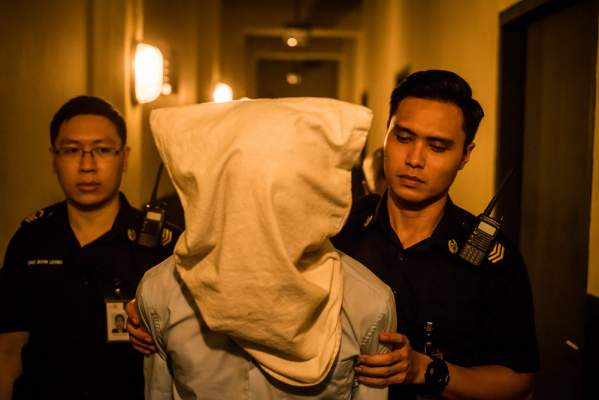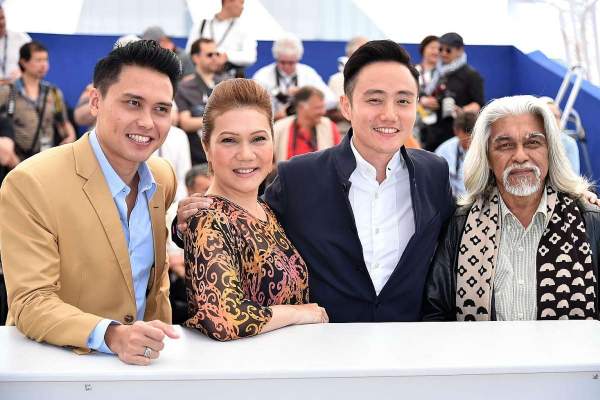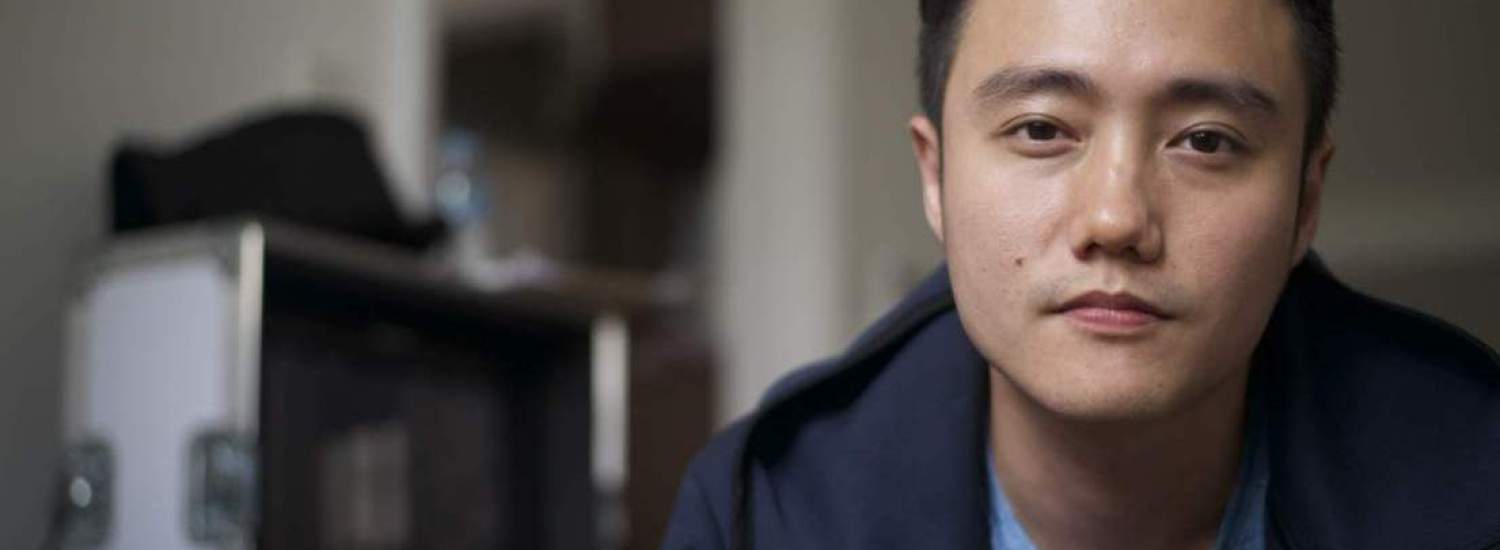It is an exciting time for the Singapore film industry – Boo Junfeng
Singaporean filmmaker Boo Junfeng’s second film Apprentice, which is Singapore’s official entry to the Oscars and premiered at the Cannes Film Festival, is a disturbing and thought – provoking film. The film revolves around the insane death penalty laws and shows the world of both the executioners and those being executed.
The well-crafted narrative of the film says a lot about the young and promising filmmaker’s work. 33-year-old Junfeng, who has directed seven shorts films and whose debut feature Sandcastle was Singapore’s first film to be invited to the International Critics’ Week at Cannes, spoke to Pandolin during his recent visit to India.

Boo Junfeng
What inspired this film?
I have always been very concerned about capital punishment. When I was around 14 or 15 years old, I was in the debate team in school and we had the topic, ‘Capital punishment is dehumanizing’. I was for it and supposed to argue that capital punishment is dehumanizing. I remember that I had to actually look in the dictionary to find out what dehumanizing actually meant. It was my first introduction to the idea of death penalty and its implications especially in the USA. I found the idea of death and the turmoil that the person has to go through very cruel. It sounded like a very foreign subject because when we were debating, all the arguments were from the US. There was nothing substantial for Singapore.
It was much later in life that I got to know about friends from the civil society groups in Singapore and became more acquainted with it. In Singapore, a lot of it has to do with the fact that death penalty is mandatory – in cases such as drug trafficking over a certain amount; Up until 2012, it was a 100% mandatory sentence. The argument made by the authorities is that the threat of death will probably stop you from indulging in the act. It may sound logical but the fact is that even with the law there are many people who continue to commit the crime, quite often in desperation. So it just feels like a quick fix. It seems like the government’s answer to the problem but it isn’t really one.
The biggest struggle was to put myself in the hangman’s shoes and feel all that he went through and how it all made sense
With what perspective did you make this film? Did you want it to raise questions or convey a certain message?
For me, what is most important is that the film provides a different point of entry to the issue. It is an issue that most people want to put out of mind. In the film, you probably don’t get a very clear message because that’s not the point. I don’t wish to keep providing answers for the audience. I wish to seed questions and allow the audience to think and contemplate a bit more. I think that is what I can ask for. If I wanted it to be an activist film, it would have been told in a very different way.
Are you satisfied with the way people have responded to the film?
At least in Singapore, I’ve seen people thinking in terms of characters and their point of view. So that for me, as a filmmaker and storyteller, is very rewarding because it feels like the characters have stayed with the audience. But from the issue point of view – yes and no. I think people connect with it and perhaps think about it.
Since the film was selected at Cannes and has received a lot of prestige, so the press still tends to focus on the prestige element – the idea of the film having been to a lot of festivals but ignoring the issue that the film raises. I wish it had more of a discussion surrounding the issue. But with these laurels and awards, it gets more reasons to be in the mainstream consciousness. It raises the profile of the film. It got people to the cinemas to watch it. The fact that it is Singapore’s official entry to Oscars, is a matter of pride for the people of Singapore. I hope the questions that people took away with them will stay with them.

Still from Apprentice
There haven’t been many films that showcase the perspective of an authorized executioner as well as family members of the executed in a way similar to yours. In that case, what were your reference points to make sure that you are working on the right path?
There have been films about executioners. In fact, there is an Indian film that also had to do with succession. It is about a family of executioners. But I can’t remember the name of the film.
I didn’t want to make Apprentice based on my experience of watching other films. I wanted to understand myself what prison life was like. I didn’t put myself in jail but I interviewed former executioners, ones who walked with the inmates on their final walk and the family members of the ones who were executed. It was very heavy to meet these people, especially the conversations I had with the family. Especially this extremely poor Indian family staying in Singapore that I spoke with. The breadwinner of the family was executed for drug possession. His son loved him very much and was just seven when this man was executed. After that he basically grew up with a lot of angst in him. He was always getting into fights. I met him when he was 19, with all those muscles that he had, one could understand a lot of things.
One question I asked him was that whom did he blame for the loss of his father. And he said that he blames drugs. But a couple of years later I heard that he was caught and put in jail for drugs. So it was quite heartbreaking because you realize that it is a cycle that perpetuates itself. Does the government imagine that it is not solving the problem but instead causing one? We also don’t render any assistance to these families. So it was extremely heavy.
When you are watching a film, even if you don’t know the language, the context, emotions and feelings engage you
You must have gone through a huge emotional turmoil during the five-year-long journey of making of the film.
When I was going to meet the first executioner, who is quite known, I was very nervous. This was a man who had killed a few hundred people in his lifetime. But just five minutes into the conversation and I forgot that he was a hangman. He was very lovable, a fatherly kind of character. I met his family and went to his home. It completely threw me off and by the time I had written the draft of the script, I realized that the character of the hangman that I had written was just a caricature. So that was my biggest struggle, to put myself in his shoes and feel all that he went through and how it all made sense. That to me was a lesson in understanding things. It was enriching for me.
You had also read a book by an executioner called Darshan Singh who had executed 18 people in one day. Was it one of the reasons that you deliberately included two Indian actors in the film?
The reality is that Singapore is a multiracial country where one can see people from different races. I just wanted the film to have that diversity that the Singaporean society has.

With the cast of Apprentice
Where do you want to take the film now?
Right now I’m glad that the film has taken a life of its own. I think I would just let it go and sometimes I’ll travel with it.
What is most important is that the film provides a different point of entry to the issue
At the age of 33, you have already directed two features, including one that has been selected as Singapore’s official entry to the Oscars. How did you relationship with films first begin?
When I first started, all I was exposed to was Hollywood films. I was very interested in how films are made. So I went to film school and did production design and art direction first. And it wasn’t until I went to a student exchange programme in Barcelona that I got to direct my first film. That was in Spanish, a language that I don’t speak. And Apprentice is also in Malay, which is not my native language. I think films just transcend language. When you are watching a film, even if you don’t know the language and are just reading the subtitles but the context, emotions and feelings engage you.
Tell us about the film industry in Singapore, what kind of cinema can one find there?
It is a very small community. For a long time we have been seeing either commercial comedies, horror films or very art house cinema that mainly goes to festivals. But in recent years, there have been more and more filmmakers who are finding an in-between. That is why it is an exciting time for the Singapore film industry.



